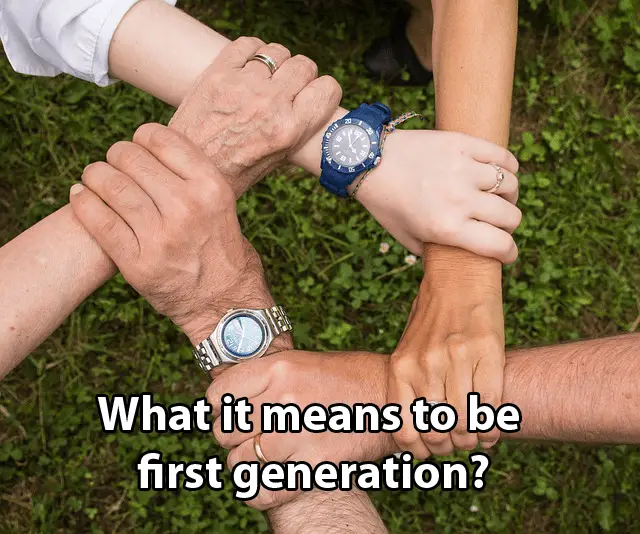
Building a Strong Scholarship Application as a First-Generation Student
Navigating the scholarship application process can be daunting for any student. However, first-generation students often encounter unique challenges and may lack the guidance that others can receive from family members who have gone through similar experiences. This article outlines essential steps to Building a Strong Scholarship Application, tailored specifically for first-generation students.
Understanding What It Means to Be First-Generation
First-generation students are those whose parents did not complete a four-year college degree. This distinction often carries additional hurdles in understanding the higher education landscape, including scholarship opportunities. Recognizing this identity is crucial, as many scholarships are designed specifically to support first-generation students.
Start Early
Starting early gives applicants ample time to research scholarships, prepare required documents, and refine their applications. High school juniors should begin exploring potential scholarships so they can plan accordingly. Time management is key; breaking down tasks into manageable steps can prevent last-minute stress and ensure a polished application.
Research Thoroughly
Research is the backbone of any successful scholarship application process. First-generation students should utilize resources like high school counselors, online databases (such as Fastweb and Scholarships.com), and community organizations that offer financial aid guidance.
It’s essential to read each scholarship’s criteria carefully. Some may focus on academic achievements, while others could prioritize community service or specific talents. Knowing the requirements helps in tailoring applications to match what funders are looking for.
Gather Necessary Materials
Before beginning the actual application process, gather all necessary materials:
- Transcripts: Obtain official copies from your high school.
- Letters of Recommendation: Identify teachers or community leaders who know you well and can speak positively about your character and achievements.
- Personal Statement or Essays: Reflect deeply on your experiences and aspirations.
- Financial Information: Some scholarships require detailed financial information from applicants’ families.
Having these materials ready ensures that you won’t be scrambling at the last minute.
Crafting a Compelling Personal Statement
The personal statement is perhaps one of the most critical components of a scholarship application. It’s an opportunity for first-generation students to share their unique story — highlighting their background, challenges they’ve overcome, and future goals.
- Be Authentic: Authenticity resonates with review committees. Share genuine experiences without exaggeration.
- Address Challenges: Discuss any obstacles faced due to being a first-generation student and how these have shaped your resilience and determination.
- Set Clear Goals: Explain how receiving the scholarship will help achieve educational and career aspirations.
- Seek Feedback: Have teachers or mentors review your personal statement for clarity and impact before submitting it.
Highlight Extracurricular Involvement
Scholarship committees often look beyond academic achievements to understand an applicant’s overall contributions and potential impact on society:
- Community Service: Involvement in community service demonstrates leadership skills and a commitment to giving back.
- Clubs & Organizations: Participation in clubs shows diverse interests and teamwork abilities.
- Work Experience: For some first-generation students, working part-time jobs may be necessary to support their families or themselves — this experience also highlights strong work ethics.
Detailing these activities provides a fuller picture of who you are beyond grades alone.
Acquiring Strong Letters of Recommendation
Letters of recommendation hold significant weight in scholarship applications:
- Choose Wisely: Select recommenders who know you well—teachers, coaches, employers—and can provide specific examples of your strengths.
- Provide Context: Give recommenders details about each scholarship so they can tailor their letters accordingly.
- Allow Time: Approach potential recommenders well before deadlines—at least one month in advance—and remind them as deadlines approach gently.
Strong recommendations reinforce your attributes discussed elsewhere in your application package.
Demonstrating Financial Need (If Applicable)
Many scholarships consider financial need when selecting recipients:
1Accurate Documentation: Provide requested financial information accurately—errors might lead disqualification even if unintentional
2Narrative Explanation: In addition/documentation/narrative explaining/financial circumstances helpful—e.g., unique situations not captured typical forms/taxes
3Connecting Dots:/Narrate/how receiving/scholarship/substantially alleviate hardships/enable focus/studies rather juggling/multiple work commitments
This transparency helps reviewers understand why supporting someone’s education transformative investment community/future workforce/society overall
Preparing For Interviews (If Required)
Some scholarships require interviews part selection process:
1 Research Organization Interview Panel Know/more about/interview panelists beforehand eases nerves sets tone conversational dynamic interaction rather formal grilling session
















